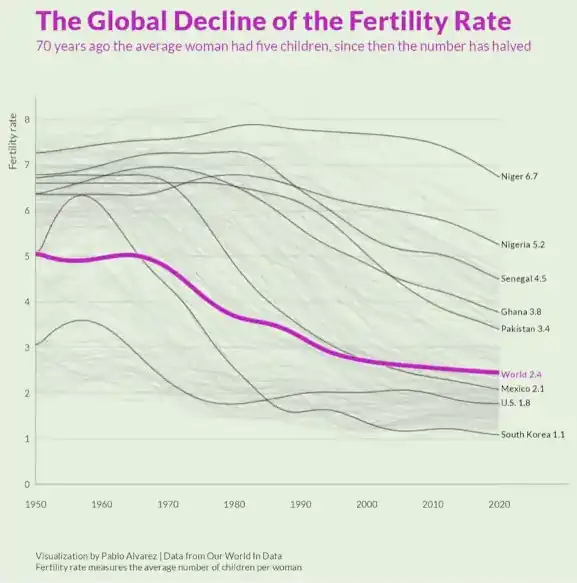Exploring why these topics on ageing are trending and their significance.
Did you know that the number of people aged 60 and over in South Africa is expected to double by 2050? This significant demographic shift is driving a wave of interest in topics related to ageing and retirement.
In this blog post, we’ll explore some of the most trending topics in retirement living and discuss why they’re so important. We’ll delve into how these trends are shaping the way we think about ageing and retirement, and provide insights into how they can benefit you.
If you’re curious about what’s happening in the world of retirement, you won’t want to miss this. We’ll also explore some of our previous posts, such as “The Enduring Power of Food: A Deep Dive into How What We Eat Shapes Who We Are” and “Unleashing Your Inner Genius – How Creativity Can Enrich Your Retirement“, to provide you with a comprehensive understanding of the latest trends in retirement living.
Get ready to discover exciting new ideas and insights that can help you make the most of your golden years!
What are the current Trending Topics?
As we explored the current trends in ageing, we identified the following 10 topics as being particularly prominent:
The 10 Trending Topics in the Field of Ageing
- Age-related diseases: The battle against Alzheimer’s, dementia, Parkinson’s, and other age-related diseases continues to be a top priority for researchers and healthcare providers.
- Ageing and technology: From AI-powered assistants to wearable devices, technology is playing an increasingly important role in enhancing the lives of older adults.
- Healthy ageing: The pursuit of a healthy, active, and fulfilling later life is driving interest in topics like exercise, nutrition, and mental health.
- Ageing and the workforce: As the global population ages, discussions about age discrimination, retirement planning, and the skills needed for an ageing workforce are becoming more prevalent.
- Ageing and social justice: Issues like ageism, elder abuse, and the rights of older adults are gaining attention as we strive for a more equitable society.
- Ageing and the environment: The impact of climate change on older populations and the role of older adults in environmental activism are emerging as important areas of concern.
- Ageing and housing: Ensuring that older adults have access to affordable, accessible, and safe housing is a critical challenge.
- Ageing and mental health: Addressing mental health issues, such as depression, anxiety, and loneliness, is essential for the well-being of older adults.
- Ageing and spirituality: The role of spirituality and religion in ageing and end-of-life care is being explored, providing comfort and meaning to many.
- Ageing and diversity: Understanding the diverse experiences of ageing populations, including racial, ethnic, and socioeconomic disparities, is essential for addressing the unique needs of all older adults.
These trending topics reflect the complex and multifaceted nature of ageing, and they are shaping the way we think about and approach later life.
Modern Living Flats

Basic Cottages

Modern Comfort Cottages

Comfortable Frail Care

Understanding Trending Topics
Defining “Trending”
When we talk about “trending,” we’re referring to the topics that capture widespread attention and interest at a particular moment in time. These trends are not random—they are identified and measured through data collected from multiple sources.
For example, search engine data offers valuable insights into what people are actively seeking online, while social media engagement provides a more immediate and interactive view of what topics are sparking conversations.
In addition to digital platforms, traditional news coverage plays a significant role in pushing certain topics to the forefront of public consciousness. These various streams of information come together to help us identify which topics, including topics on ageing, are gaining traction and resonating with different segments of the population.
Factors Influencing Trends
Several factors contribute to why certain topics rise to prominence. Societal changes are one of the main drivers. For example, as the global population ages, there is a growing focus on the challenges and opportunities that come with later life. This demographic shift naturally leads to more discussions about topics on ageing, ranging from health and wellness to financial security.
Technological advancements also play a crucial role. Innovations in areas like artificial intelligence (AI), healthcare, and communication are not only transforming how we live but also drawing attention to how these technologies can benefit older adults.
Whether it’s AI helping older adults maintain independence or telemedicine making healthcare more accessible, the intersection of ageing and technology is becoming increasingly relevant.
Lastly, media attention is a powerful influencer. Media outlets often highlight stories that resonate with their audiences, and as public interest in ageing grows, more coverage is devoted to these issues. Documentaries, news reports, and even social media influencers are bringing awareness to the various aspects of ageing, ensuring that these discussions reach a broader audience.
Why Ageing Topics Are Trending
Demographic Shifts
One of the primary reasons why topics on ageing are trending is the dramatic demographic shift occurring globally. Many countries, including South Africa, are seeing a significant increase in their older populations due to a combination of factors such as declining birth rates and increased life expectancy. With more people living longer, the proportion of older adults in society is steadily rising, leading to widespread interest in issues that directly impact this group.
In South Africa, for instance, it’s expected that the number of people aged 60 and over will double by 2050. This shift creates a pressing need to address various aspects of ageing, from healthcare and housing to financial security and social integration. Governments, businesses, and communities must rethink their approaches to these issues, resulting in more focus on topics on ageing in public discourse.
This demographic change also influences policies, economic planning, and societal structures, making it crucial for everyone—not just older adults—to stay informed about the latest trends.
Technological Advancements
Technological innovations are another significant driver of the interest in ageing-related topics. Advancements in artificial intelligence (AI), healthcare technology, and communication tools are not only changing the way people live but also how they age.
AI-powered devices, for example, are helping older adults maintain independence by assisting with tasks such as medication management, home security, and even companionship through virtual assistants.
Healthcare technologies are also revolutionising how we approach ageing. Telemedicine, wearable health devices, and advancements in medical treatments allow older adults to access care more easily and maintain better health. These innovations are bringing issues related to ageing into the spotlight, as people start to explore how technology can improve the quality of life for older generations.
The focus is not just on making life easier but also on ensuring that older adults can enjoy their later years with dignity, autonomy, and well-being.
Social and Economic Factors
Beyond demographics and technology, social and economic factors also play a key role in shaping trending topics on ageing. Ageism, the economic implications of an ageing workforce, and social justice issues like elder abuse are gaining attention as society grapples with how to support its older members. Ageism, for instance, is increasingly being challenged as more people recognise the value of older adults in the workplace and community.
Economically, ageing populations present both challenges and opportunities. On one hand, there are concerns about the sustainability of pension systems, healthcare costs, and the impact on the workforce as more people retire. On the other hand, older adults stay in the workforce longer and contribute to economic growth in new ways.
Discussions about retirement planning, financial security, and the changing nature of work are now more relevant than ever, as both individuals and policymakers work to adapt to the realities of an ageing society.
Social justice issues, such as the rights of older adults and efforts to prevent elder abuse, are also gaining prominence. As society becomes more aware of the challenges faced by older adults, there is growing advocacy for greater protection and support systems to ensure that older people can live with dignity and respect.
Cultural and Societal Changes
Cultural and societal attitudes towards ageing are also evolving, contributing to the rise in topics on ageing. In many cultures, ageing was once seen primarily as a period of decline and dependency. However, this view is changing as more people begin to recognise the potential for growth, contribution, and fulfilment in later life.
Increased awareness of age-related issues, along with a growing understanding of the diverse experiences of older adults, has led to more nuanced discussions about what it means to age in today’s world. Media portrayals of ageing are shifting, with more positive and empowered representations of older adults appearing in films, television, and advertising.
Additionally, intergenerational dialogue is becoming more common, as younger and older generations come together to share knowledge, experiences, and support.
These cultural shifts are helping to break down the stereotypes and stigmas associated with ageing, opening up new conversations about how society can embrace and support its ageing population. This growing awareness is not just important for older adults themselves, but for everyone, as we all have a stake in shaping the future of how we age.
Together, these factors—demographic shifts, technological advancements, social and economic influences, and evolving cultural attitudes—are driving the interest in topics on ageing and shaping how these issues are discussed and addressed.
As these trends continue to develop, they will have far-reaching implications for society, making it more important than ever to stay informed and engaged.

Audience and Significance
The audience for ageing-related content is broad and diverse, reflecting the multifaceted nature of ageing itself. While older adults are naturally a key demographic, other groups also have a vested interest in these topics. Here are the primary audiences:
- Older Adults: The primary consumers of topics on ageing, this group is directly impacted by the changes and challenges associated with growing older. From staying informed about health and wellness to learning about financial security and housing options, older adults engage with content that helps them navigate retirement, health management, and maintaining an active lifestyle.
- Caregivers: Family members and professional caregivers play a vital role in supporting older adults. For them, understanding the latest trends in healthcare, technology, and mental well-being is essential to providing better care. They also need insights into resources, legal rights, and social support systems to ensure that they are equipped to manage the emotional and practical aspects of caregiving.
- Healthcare Professionals: Doctors, nurses, gerontologists, and other medical professionals are on the front lines of managing the health needs of older populations. They rely on ageing-related content to stay updated on new treatments, research, and technologies that enhance patient care, making it easier to improve the quality of life for older adults.
- Policymakers: With ageing populations presenting significant economic, healthcare, and social challenges, policymakers need to stay informed about these trends. The rise in the number of older adults requires government officials and stakeholders to rethink pension systems, healthcare funding, housing policies, and support for age-friendly communities.
Importance to the Target Audience
Each of these groups interacts with topics on ageing in ways that are highly relevant to their needs, making these discussions crucial for several reasons:
- Health and Well-being: For older adults and caregivers, staying informed about age-related diseases, mental health, and healthy ageing practices is essential to maintaining a high quality of life. Advances in medical treatments, new research into age-related conditions, and lifestyle recommendations allow individuals to live healthier and more independent lives for longer.
- Quality of Life: As people live longer, there is a growing emphasis on not just extending life expectancy but ensuring that those later years are fulfilling and meaningful. Discussions around mental health, spirituality, and social connections directly impact the quality of life for older adults, empowering them to lead engaged and active lives.
- Care and Support: For caregivers, healthcare professionals, and policymakers, topics on ageing are critical to understanding how best to support older adults. This includes ensuring access to affordable healthcare, designing age-friendly cities, and creating services that reduce isolation, loneliness, and dependency. The better informed these groups are, the more equipped they are to create systems that improve the lives of older individuals.
- Societal Issues: Ageing-related content also tackles broader societal issues like ageism, elder abuse, and the need for social justice. For policymakers and social advocates, these discussions are key to fostering more inclusive and equitable societies. By addressing these concerns, societies can work toward eliminating discrimination based on age and ensuring that all individuals have access to the care and support they need.
The significance of these topics on ageing lies not only in their direct relevance to the lives of older adults but also in the way they shape the future of society as a whole. From healthcare to economic stability, these issues impact everyone, making them essential for understanding the broader trends shaping our collective future.
Global Trends and Cultural Differences
Regional Variations
The way topics on ageing are viewed and addressed can vary greatly across different regions and countries. These variations are influenced by economic, healthcare, and societal structures that shape how ageing populations are treated and supported.
- Developed Countries: In regions like Western Europe, North America, and parts of East Asia, where life expectancy is high and birth rates are low, the growing number of older adults is a significant concern. Countries such as Japan, Germany, and the U.S. are facing challenges related to pension systems, healthcare costs, and age-friendly infrastructure. As a result, topics like technology in ageing, retirement planning, and healthy ageing dominate the conversation, with governments and industries investing heavily in solutions for an ageing workforce and rising healthcare demands.
- Developing Countries: In many parts of Africa, Asia, and Latin America, the ageing population is growing, though with different priorities compared to developed nations. Countries like South Africa and Brazil, while experiencing demographic shifts, often contend with limited resources and healthcare infrastructure. As a result, discussions around ageing in these regions focus more on social support, affordable healthcare access, and community-based solutions. Topics like elder care in extended families, ageing and poverty, and the effects of migration on ageing populations are often prioritized.
- Global South vs. Global North: The Global South, comprising developing regions, often has a larger, younger population overall, while the Global North is more focused on managing the demands of rapidly ageing societies. This disparity results in differences in how both regions address topics on ageing. For instance, while developed countries may be focused on robotics and technology in elderly care, developing regions may emphasize intergenerational family care and the development of basic healthcare services for older adults.
Cultural Factors
Cultural beliefs, values, and traditions play a crucial role in shaping attitudes towards ageing, influencing everything from how older adults are perceived to the kinds of care and support they receive.
- Respect for Elders: In many Asian and African cultures, ageing is associated with wisdom and respect. Elders are often seen as valued members of the family and community, with traditions that place them at the heart of social and cultural life. In contrast, some Western societies, where individualism is more pronounced, may place a greater focus on independence in older age, leading to different approaches to elder care, such as nursing homes or assisted living communities. These cultural differences shape the discussions around topics like housing, care systems, and the role of older adults in society.
- Attitudes Toward Retirement: Retirement is another area where cultural differences are clear. In countries like the U.S. and the U.K., retirement often symbolizes a well-earned rest and a time for personal pursuits. On the other hand, in cultures where multi-generational living is common, such as India or Italy, retirement might mean continuing to contribute to family life, supporting younger generations, or even staying in the workforce longer.
- Views on Ageing and Spirituality: Spiritual beliefs also influence how ageing is perceived. In some cultures, ageing is seen as a spiritual journey, leading to increased reverence for older adults as they approach the end of life. This can impact how topics like ageing and mental health, end-of-life care, and spirituality are discussed in different regions.
Content Consumption
How different cultures consume content related to ageing also varies, reflecting regional preferences in media, language, and communication styles.
- Media Formats: In some countries, older adults prefer traditional media like newspapers, radio, and television to stay informed about ageing-related topics. This is especially true in regions where internet penetration is lower among older populations, such as rural areas in developing nations. By contrast, in more digitally connected countries, older adults are increasingly consuming content through social media, online platforms, and mobile apps. Podcasts, YouTube channels, and even TikTok are gaining popularity as mediums for discussing topics on ageing, especially among younger generations interested in these issues.
- Language Preferences: Content related to ageing needs to be tailored to the specific linguistic and cultural context of its audience. For example, older adults in non-English speaking countries may prefer content in their native language, with cultural references that resonate with them. Additionally, in multilingual societies like South Africa, creating content in multiple languages ensures that a wider audience can engage with important ageing-related issues.
- Generational Differences: Even within older populations, generational differences can affect content preferences. For example, the “younger old” (aged 60-75) may be more comfortable using digital technology and consuming online content, whereas the “older old” (75+) may prefer printed materials and in-person discussions. Recognizing these preferences helps ensure that ageing-related content reaches and resonates with its intended audience.
These regional and cultural variations underscore the importance of a nuanced approach when discussing topics on ageing. By considering the diverse needs and values of different populations, content can be made more relevant and impactful, helping to address the unique challenges faced by older adults across the globe.
More About La Gratitude Accommodation
Conclusion
In this post, we’ve explored the most significant topics on ageing, from global trends and technological advancements to cultural differences and societal shifts.
These discussions are not just shaping the way we approach ageing but are directly impacting the well-being, care, and quality of life of older adults worldwide. Whether you’re a patient, a family member, or someone involved in elder care, understanding these topics can help you make informed decisions for a better future.
Thank you for reading through and being part of this important conversation. Be sure to follow us on social media for more updates and insights. Remember, “Age is merely the number of years the world has been enjoying you.” Keep making the most of every moment!
You can make a difference
With your assistance, the volunteers at La Gratitude will be able to take better care of not only the residents at the old age home but also the greater Newcastle community. La Gratitude is constantly involved in outreach projects to help the elderly in need in and around Newcastle.
Your donations will be greatly beneficial in the provision of food and other basic necessities for the less fortunate elderly people that require assistance.
Donating is easy, click here to donate now.





